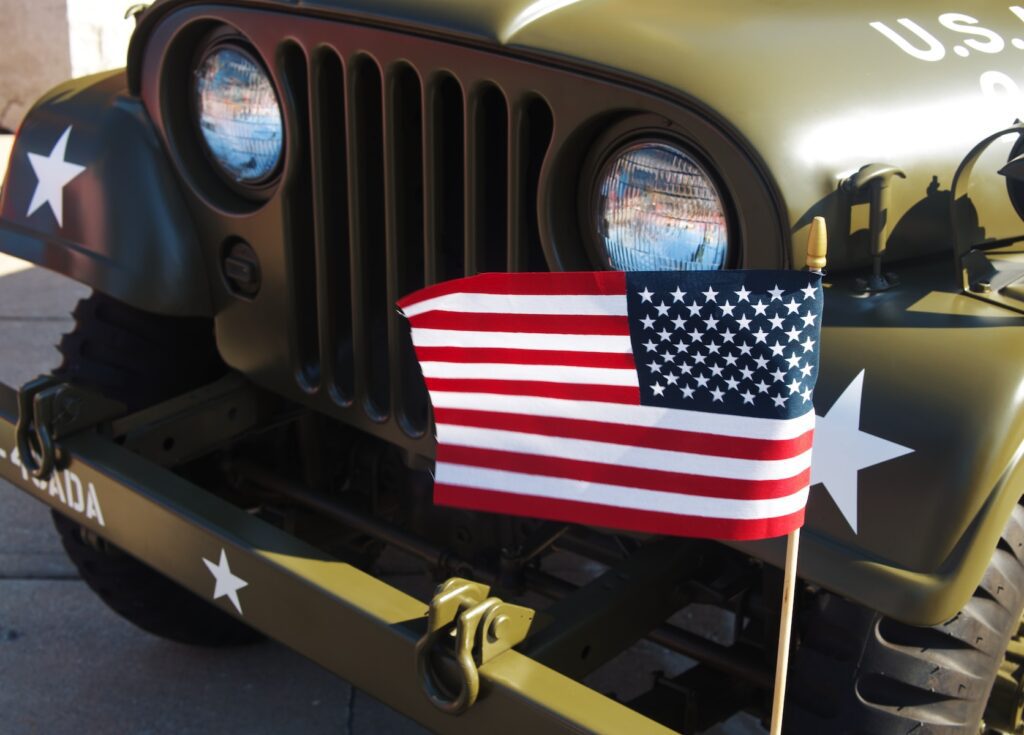
Shipping military vehicles involves a unique set of challenges and considerations that differ significantly from standard vehicle transport. These specialized vehicles, ranging from tanks and armored personnel carriers to military trucks and specialized equipment, require careful handling due to their size, weight, and the stringent regulations governing their transport. The process of shipping military vehicles is not only about logistics but also about compliance with various regulations and ensuring that these high-value assets arrive in the same condition they left. There are tons of websites in the car shipping industry, but we have decided to give the absolute cream of the crop.
Summary
Understanding Military Vehicle Shipping
What Makes Shipping Military Vehicles Unique? Shipping military vehicles is distinct from standard vehicle transport due to several factors. These vehicles often have specialized requirements related to their size, weight, and construction. Additionally, they are frequently subject to stringent government regulations and military protocols. This section will delve into the unique aspects of military vehicle shipping, including the need for specialized equipment and expertise to handle these complex transports effectively.
Types of Military Vehicles Military vehicles encompass a wide range of equipment, each with its own shipping needs. This subsection will provide an overview of the various types of military vehicles commonly shipped, such as tanks, armored personnel carriers, military trucks, and specialty vehicles. Understanding the different types helps in tailoring the shipping approach to meet the specific needs of each vehicle, ensuring their safe and efficient transport.
Regulations and Requirements
Government and Military Regulations Shipping military vehicles requires adherence to various government and military regulations designed to ensure security and compliance. This section will outline the key regulations that must be followed, including necessary documentation, permits, and approvals. Understanding these regulations is crucial for avoiding legal complications and ensuring that the vehicles are transported in accordance with all applicable laws.
International Shipping Considerations When shipping military vehicles internationally, additional regulations and requirements come into play. This subsection will cover the international shipping considerations, including customs regulations, international transport agreements, and any special handling requirements. It’s essential to be aware of these factors to ensure a smooth cross-border transport process and avoid delays or issues with customs.
Preparation for Shipping Your Car
Pre-Shipping Inspections and Documentation Before shipping military vehicles, thorough inspections and documentation are crucial. This section will detail the steps involved in pre-shipping inspections, including checking for any pre-existing damage and ensuring that the vehicle meets all shipping requirements. Additionally, it will cover the necessary documentation, such as inspection reports and shipping manifests, which help facilitate a smooth transport process and prevent any potential issues.
Packing and Securing Military Vehicles Proper packing and securing of military vehicles are essential to prevent damage during transport. This subsection will provide guidelines on how to prepare military vehicles for shipping, including methods for securing them to avoid movement and damage. It will also cover any special packing materials or techniques needed to protect these valuable assets throughout their journey.
Vehicle Shipping Methods and Options
Open vs. Enclosed Auto Transport Choosing the right shipping method for military vehicles is essential, and this section will compare open and enclosed car transport options. It will outline the advantages and disadvantages of each method, including factors such as cost, protection from the elements, and suitability for different types of military vehicles. Understanding these options helps in making an informed decision based on the specific requirements and value of the vehicle being shipped. If you want to learn more about them, give us call and we will help you out.
Choosing the Right Transport Company Selecting a transport company with expertise in handling military vehicles is crucial for a successful shipping operation. This subsection will offer tips on evaluating and choosing a reliable transport company, including criteria such as their track record, experience in military logistics, and customer reviews. Ensuring that the chosen company has the capability and experience to handle military vehicles will contribute to a smooth and efficient shipping process.
Case Study: Successful Military Vehicle Transport
This section highlights a successful case study of shipping a military vehicle, demonstrating practical solutions and outcomes. The example provides insights into the process, challenges, and effective strategies used in transporting a military vehicle.
Case Study Example: “Transporting a Ford F-150 for Military Personnel to a New Base in Texas”
- Challenge: The transport of a Ford F-150 truck, owned by a military personnel relocating to a new base in Texas, involved challenges related to scheduling, size restrictions, and the need for secure transport to ensure the vehicle arrived in perfect condition.
- Solution: Navi Auto Transport was selected to manage the shipment. An open auto transport method was used because it was cheaper then enclosed auto transport. Detailed planning included coordinating with the military personnel to align the transport schedule with their relocation plans and ensuring all necessary permits and regulations were handled.
- Outcome: The Ford F-150 was delivered to the new base in Texas on time and in excellent condition, demonstrating the effectiveness of careful planning and secure transport methods.
Addressing Common Issues
Typical Challenges and How to Solve Them Shipping military vehicles can present various challenges, from regulatory hurdles to logistical issues. This section will identify common problems encountered during the shipping process and provide practical solutions for each. Examples include dealing with size and weight restrictions, ensuring compliance with military and government regulations, and addressing any unexpected delays.
- Challenge: Handling oversized vehicles with weight restrictions.
- Solution: Plan ahead by securing necessary permits and working with a transport company experienced in handling oversized loads. This ensures compliance with regulations and avoids delays.
- Challenge: Navigating complex regulatory requirements.
- Solution: Collaborate with a transport company familiar with military logistics and regulatory compliance. Ensure all required documentation is completed and approved in advance.
Customer Experience and Feedback Understanding the experiences of other clients who have shipped military vehicles can provide valuable insights and reassurance. This subsection will share feedback from customers who have used our services for shipping military vehicles, highlighting their experiences and how any issues they faced were resolved.
- Feedback Example: A customer who relocated their military vehicle across the country appreciated the thorough communication and timely delivery. They highlighted the transport company’s attention to detail in managing permits and ensuring the vehicle’s safe arrival.
Conclusion
In conclusion, shipping military vehicles involves careful planning, understanding of regulations, and choosing the right transport methods and company. By following the guidelines outlined in this guide, you can ensure a smooth and successful shipping process for military vehicles, whether they are being transported domestically or internationally.
If you need to ship a military vehicle this month, leave a comment below or call us directly.
